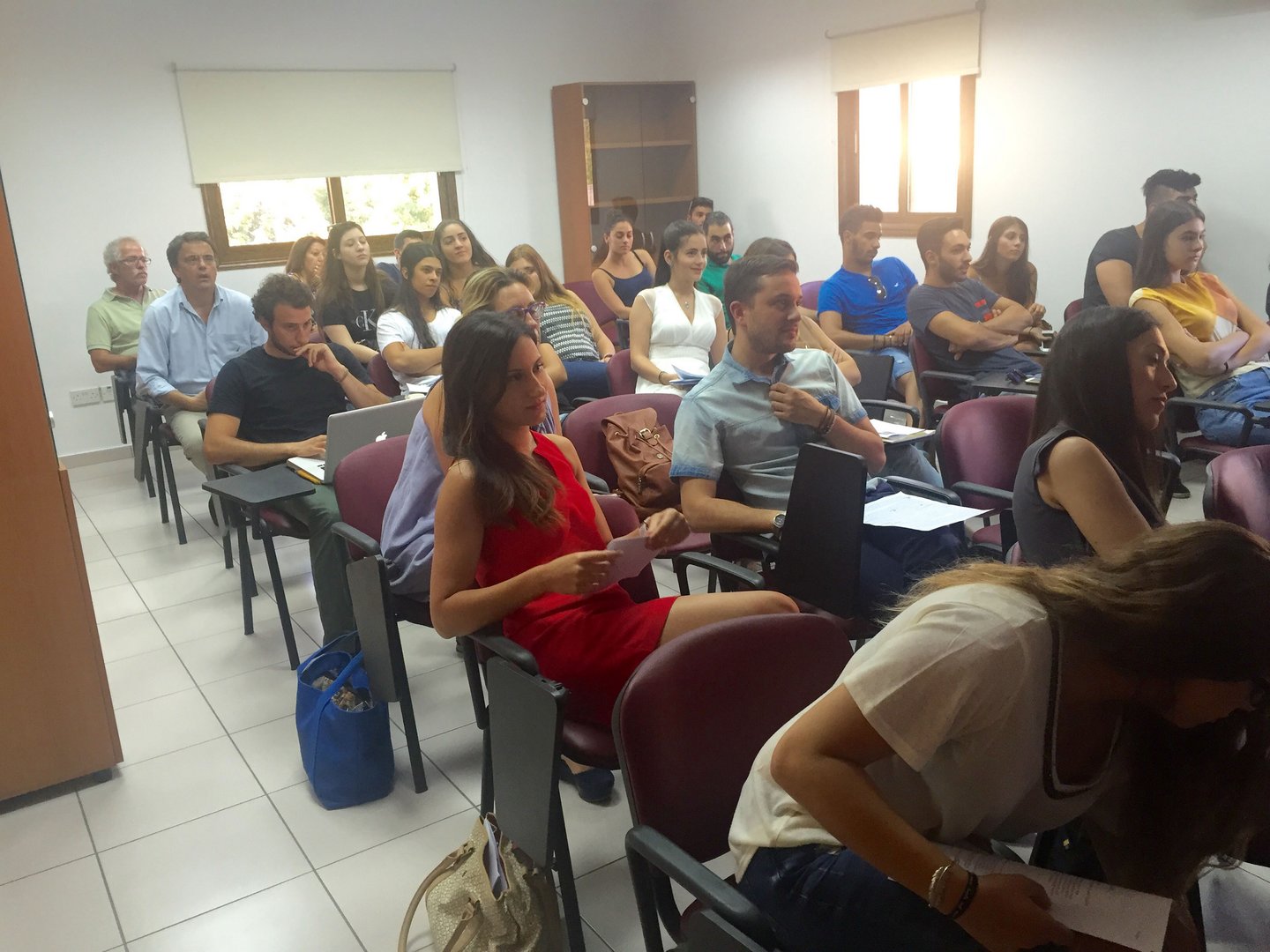The University of Cyprus has made scant progress in its struggle to introduce English taught undergrad courses
Entry requirements and tuition fees remain the big stumbling blocks to introducing English taught undergraduate degree courses at the University of Cyprus.
This was evident once again 10 days ago when the House education committee inconclusively discussed the relevant bill that was first submitted three years ago. Like all the other times the bill is on the committee’s agenda, the disagreements were so deep that the legislation seems destined to end its days in a committee drawer.
Education minister, Prodromos Prodromou, fed up of waiting and wanting a decision one way or the other asked the committee chairman Pavlos Mylonas to try and speed things up. Instead the latest committee meeting was as inconclusive as all the others.
It was ironic that Prodromou, who had publicly fought against the idea of the University of Cyprus having English as its main language of instruction when it was established 30 years ago, is now supporting the introduction of undergraduate degrees in English in a bid to attract more students from abroad.
The introduction of English programmes would not affect its Greek identity, he said. “Universities in France and Germany now offer courses in English,” he told the Cyprus Mail.
“The idea is to have five or six programmes in English, starting out with about 100 students and if these are successful these could be expanded,” said Prodromou.
Former rector of UCy, Constantinos Christofides, who was involved in the drafting of the proposal, said the move had not been influenced by Brexit, which saw tuition fees at UK universities spiral for Cypriots who consequently have to look elsewhere for degree courses if they want to study in English. Universities in the Netherlands, for example, have long offered a wide range of English taught undergraduate degrees and have low tuition fees. These have attracted many Cypriot students, especially post-Brexit.
“We had two targets in proposing the introduction of English programmes,” said Christofides. “We wanted to attract people that wanted to study in English and to increase the number of students from the Erasmus programme [the EU’s student exchange programme]. If we had courses in English more Erasmus students would come and possibly want to spend more time at the university.”
The idea was for the programmes in English to be “self-financing”, said Christofides, but this is a rather hazy notion which is at the root of the tuition fees problem as at present fees are virtually non-existent.
Dividing the annual budget of UCy by the number of students, the average cost per student is approximately €20,000. The nominal tuition fee charged is in the region of €3,000 per annum, and for many students this is covered by student grants from the state. This is because the state subsidises Cypriot students through a direct grant to the university. Now, if UCy charged this same nominal fee for its English taught courses, it would be a subsidy for foreign students studying there.
The private universities, where virtually all courses are taught in English, quite rightly point out this would be unfair competition because the public university would be using state money to gain a big price advantage, over institutions that operate in market conditions without any state support. UCy would be using the taxpayer’s money to deprive private universities of students.
“In principle, we are in favour of public universities offering study programmes in English,” said Antonis Polemitis, CEO of the private University of Nicosia.
“Our only comment is that the public university fees for English language programmes must represent the complete and actual cost of the programme,” he said. “If they do not it means, in effect, that the Cypriot taxpayer is subsidising foreign students. In a world of limited state budgets, we recommend instead, the state supports all Cypriot students.”
His point makes sense. Given that higher education is viewed as a growth engine of the economy it would seem more sensible that the public universities recruit students at an unsubsidised price in the same way as the private universities have been doing for years.
Polemitis says that the University of Nicosia fees for foreign students range from €8,000 a year for an undergraduate course to €20,000 for the medical school. He believes these are competitive prices given that the main competition are universities in English-speaking countries which generally charge significantly more.
Akel deputies have objected in principle to the public universities charging fees for English language courses.
“It is Akel’s objection to charging tuition fees that has stopped the bill being approved,” said Prodromou.
At the education committee meeting, at which a representative of the commission for the protection of competition pointed out that tuition fees must reflect actual costs, Akel deputy Andreas Kafkalias said: “not even in our neoliberal dreams would the discussion have taken such a turn.”
Kafkalias said his party was opposed to the logic of the government “that public universities must operate like ordinary businesses and survive by the conditions of the market and with the general rules for selling products and that they cannot have a comparative advantage over the competition.”
The party was preparing amendments aimed at ‘safeguarding’ the right of Cypriots and Europeans to free study at the public universities of Cyprus.
Akel’s objections are not restricted to the question of fees. The party also objects to the admission of students to the English language courses via routes other than the Pancyprian exams. At present access to public universities, depends on the marks received in these exams which are sat by all final year students at public schools.
UCy, after stand-off with political parties, has managed to admit a small number of private school students on the strength of their results in international exams such as A levels or IB. Some say the real objective of UCy is to use the English language courses to open up to more students that attend English private schools in Cyprus and cannot afford the post-Brexit fees of UK universities.
Ending the monopoly of the Pancyprian exams, Kafkalias said “would signal the beginning of the end of free public university education and deal a blow to public schools”.
The position on Pancyprian exams being the sole entry requirement is also supported by Diko, whose deputy Chrysanthos Savvides, said admission criteria were linked to the safeguarding of public schools.
“We propose that candidates for English language programmes must sit the Pancyprian exams,” he said.
Even if some compromise is reached on admissions, the issue of subsidised fees that Akel insists on seems to have led the whole process to a deadlock.







Click here to change your cookie preferences